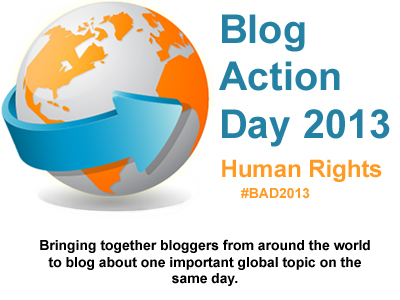16th October 2013
Human Rights and Doing Business

Human rights is the theme of this year’s Blog Action Day, which falls today. So in this blog, I’d like to focus on the link between human rights, development and doing business.
Recently, our Foreign Secretary William Hague talked about ‘Good Business: Implementing the UN Guiding Principles on Business and Human Rights.’ He outlined our Government’s commitment to protect human rights and set out clear expectations for UK companies in this area.
Among other things, this action plan sets out the UK Government’s plan to create obligations to protect against human rights abuse by British enterprises within UK jurisdiction; support UK businesses to meet their responsibility to respect human rights in their operations at home and abroad; and support access to effective remedies for victims of human rights abuse involving companies.
In many respects, Ethiopia is continuing to surprise the world with its tremendous economic development, which we have seen over the last 10 years. It is also one of the few African countries that is on target to achieve most of the Millennium Development Goals (MDGs). Yet this rate of economic progress needs to be matched by improvements in human rights performance, so that its citizens can benefit fully from this development.
Not just social and economic rights but civil and political rights too.
Expansion of political space, the justice system and freedom of expression are all areas where progress is possible. And good information is a critical element in ensuring quality development. So I am glad to be witnessing growing numbers of Ethiopian bloggers and social media activists raising different issues.
Social media create a platform for many different people to raise their concerns. And experience throughout the world shows that governments trying to stifle the free flow of information are ultimately doomed to failure.
In addition to blogging and the bloggers, we all have important responsibilities to protect and uphold human right values. This is also true for businesses. I am delighted that the UK government is giving a lead in this area.
I checked the link posted by Mr. Wabella.
It is interesting that only three blogs are listed under Ethiopia.
And, Mr. Wabella said: “almost all of the blogs participating in the blog action day..” as if that is a comprehensive list.
While I am adamantly opposed to non-transparent blocking(as I repeatedly emphatically wrote on blog-posts), I am perplexed as to how the three blogs were chosen for that list.
That is censuring in all but name.
Dear Mr. Wabella,
Thank you for your useful feedback. My comment was a general one about the increase in Ethiopian blogging over time and not about what happened on Blog Action Day itself. But you raised an important point about Ethiopian blogs being blocked on that day. In the context of our wider promotion of and support for human rights, we would take issue with any unjustified restriction on freedom of expression, here in Ethiopia or in any other place. And of course one of the purposes of the Blog Action Day itself was to address the concerns you raised.
“So I am glad to be witnessing growing numbers of Ethiopian bloggers and social media activists raising different issues.” your excellency, I cant understand these statement, almost all of the blogs participating in the blog action day (http://blogactionday.org/participants/#.UmGDaWftq9s) from Ethiopia are blocked, about whom you are referring to ?
we need an elaboration
#Bad2013
In the words of Rodney King: “Why can’t we all just get along?”
Today I have published a Blog Action Day piece about 4 remarkable women:
http://dave-lucas.blogspot.com/2013/10/blogactionday-meet-4-remarkable-ladies.html